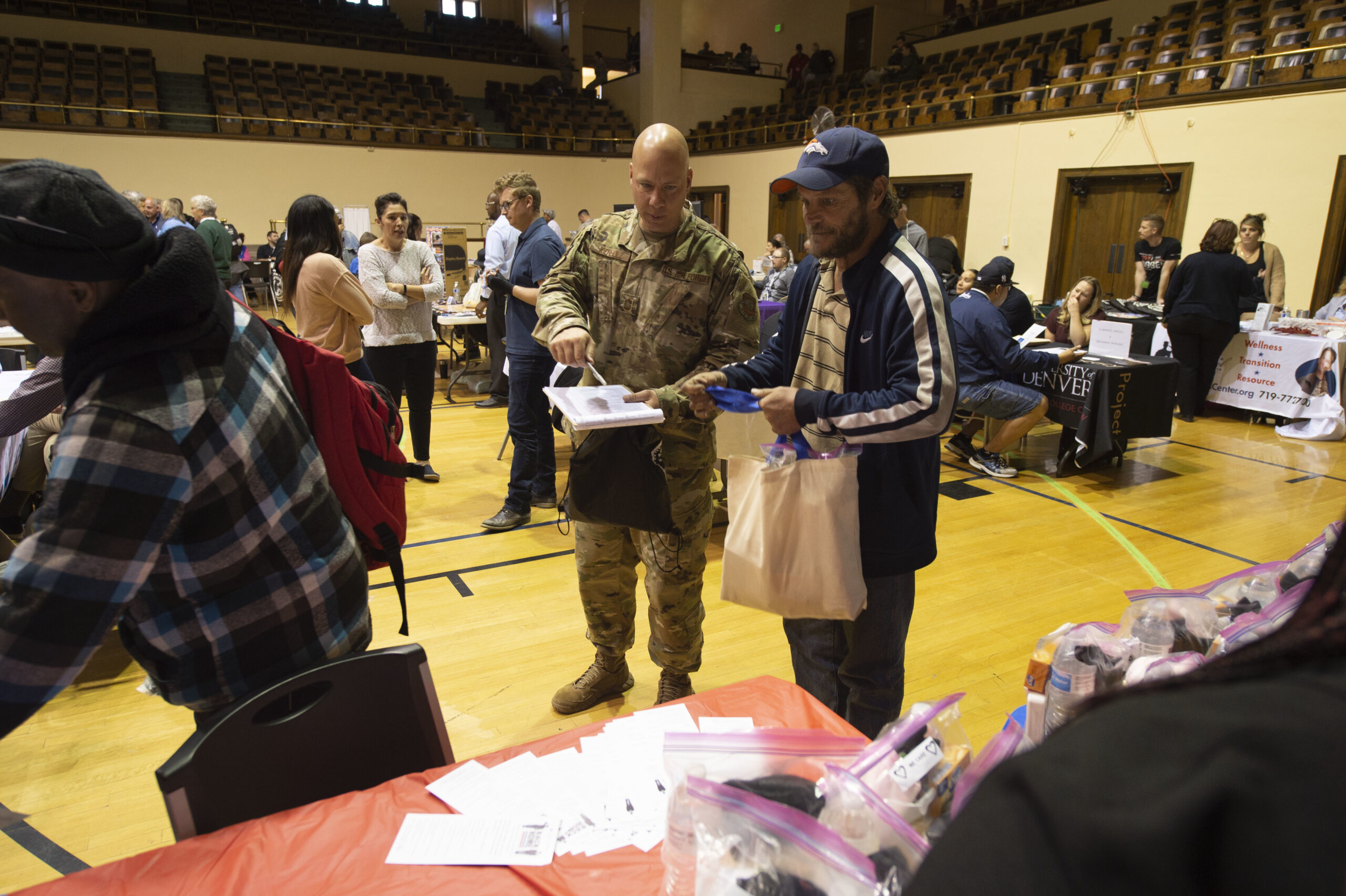

The U.S. Department of Housing and Urban Development (HUD) – VA Supportive Housing Program (HUD-VASH) is a saving grace for thousands of homeless veterans or veterans facing an impending housing crisis.
Though the military has done a better job of advising service members on how to transition back into the civilian world, many still find themselves without shelter or at risk of losing their homes.
According to the U.S. Department of Veterans Affairs (VA), the number of homeless veterans declined 52% from 2007 to 2010. But 35,574 veterans were still homeless as of January 2023 — an increase of 7.4% over the previous year.
It’s no secret that veterans are stubborn and proud, and many are ashamed to reach out for help. But if you were surrounded by an enemy and had air support close by, would you not ask for that help?
HUD-VASH is air support for veterans whose housing and financing options have failed. Like all government programs, the details of HUD-VASH can be confusing, as can the detailed set of criteria that applicants must meet to qualify.
Subscribe to Task & Purpose today. Get the latest military news and culture in your inbox daily.
What is HUD-VASH?
HUD-VASH is a collaborative program authorized under the United States Housing Act of 1937. It combines HUD’s rental assistance with the VA’s case management and supportive services. The program alleviates some of the financial stress of housing costs so that veterans and their families can focus on getting back on their feet while improving their overall health and well-being.
The program combines HUD Housing Choice Vouchers (HCV) for homeless Veterans with case management and supportive services provided through VA Medical Centers. Eligible Veterans gain access to permanent housing and the means to maintain it through the HUD-VASH program. The VA will connect a veteran with a case manager if needed.
Not all veterans have drug, alcohol, or mental health problems, so case management may not be needed. A veteran can still receive housing assistance if they do not need case management, medical, or mental health assistance. If a veteran does need help with that type of problem, their case manager will help set up appointments and any other resources necessary.
The vouchers are calculated by using the lower of the gross rent — rent plus your utility cost — or the payment standard established by HUD for the bedroom size voucher and subtracting the greater of 30% of monthly adjusted income or 10% of gross income. You cannot pay over 40% of your monthly adjusted income for rent and utilities.
How do you qualify for HUD-VASH?
A veteran’s eligibility to participate in HUD-VASH is determined by their income and extenuating circumstances preventing the veteran and their family from finding clean, structurally sound housing.
What income qualifies or disqualifies veterans from the program depends on where they live, the cost of living, their income, and several other factors. It would be wrong to try and give a blanket statement on the income disqualification, Task & Purpose recommends that veterans contact their local VA medical center to find out if their income disqualifies them.
The only thing that is set in stone and makes a veteran ineligible is if they are convicted of a crime that results in permanent placement on the sex offenders list. If a veteran has been convicted of a felony (that doesn’t place them on the sex offenders list), you are still eligible.
A veteran must be willing to accept case management through the VA and be physically capable of living in their new residence alone. If a veteran is physically unable to take care of themself at home, there are other options available; calling your local VA is the first step in figuring that out.
How long can you stay on VUD-VASH?
A veteran accepted into the HUD-VASH program can receive assistance completing rent payments or total housing assistance as long as they’re income-eligible and benefiting from the program.
The goal of HUD-VASH is to get a veteran into a job where they can self-sustain. The VA will help veterans find work and address anything in the veteran’s life preventing them from securing proper housing.
Depending on the housing a veteran is approved for, the public housing agency working with the VA and the veteran may have rules about sobriety or other conditions required for eligibility to live in the housing. This is highly case-specific, so veterans should rely on their case manager at the VA to help guide them through the process based on their area.
Veterans in need of housing support should call the National Call Center for Homeless Veterans at 1-877-424-3838. It’s free, confidential, and trained counselors are available 24/7 to connect you with your nearest VA to get them into clean and suitable housing for veterans and their families.
If you’re thinking about suicide, are worried about a friend or loved one, or would like emotional support, the Lifeline network is available 24/7 across the United States. Reach the National Suicide Prevention Lifeline by calling or texting 988 and you’ll be connected to trained counselors.
The latest on Task & Purpose
- Marine breaks world record in deadlift competition
- Army says combat patches memo on social media is ‘not valid’
- Army trainee dies in basic training at Fort Jackson
- How grooming standards have changed in the U.S. military
- A soldier reenlisted while taped to a Howitzer cannon and that’s awesome